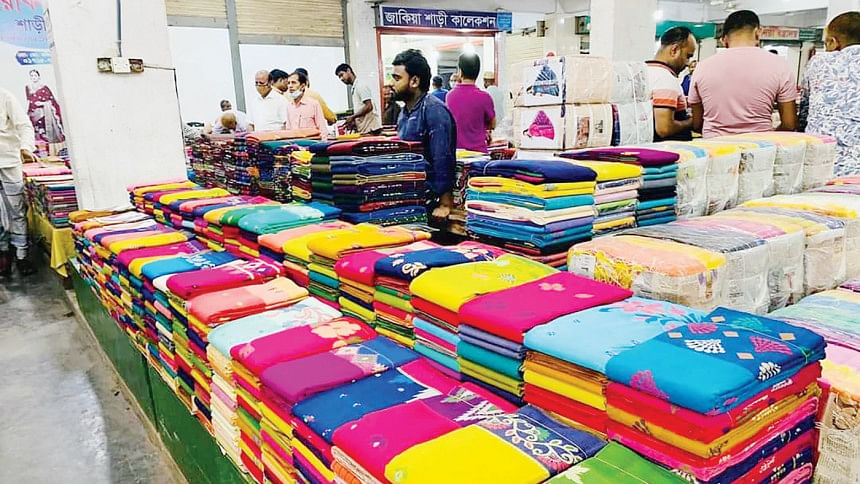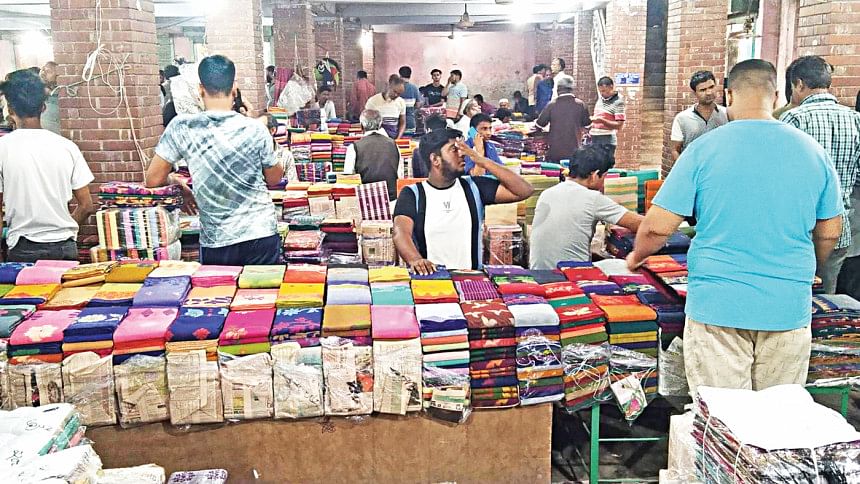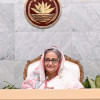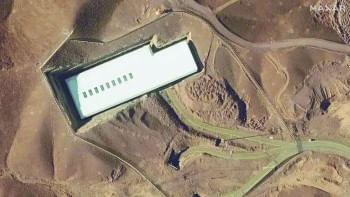Tangail sari makers see low turnout of wholesale buyers

Tangail sari weavers and traders are so far disappointed with the low turnout of wholesale buyers at Karatia market in Tangail sadar upazila as they had hoped to make good sales on the occasion of Eid-ul-Fitr this year.
Many local loom owners and traders said they went as far as borrowing money to produce saris for Eid. So, they will have to count losses just as they had in previous years, especially amid the Covid-19 pandemic, if sales do not reach the expected level.
The 200-year-old Karatia market is the main hub for Tangail saris, registering several hundred crores worth of sales ahead of Eid during the pre-coronavirus era.
At the time, wholesalers from all over the country, including Dhaka, would come to buy Tangail saris.
And even though the pandemic has since abated, the following global economic crisis and inflationary pressure resulting from Russia's war on Ukraine has stymied demand.
The more luxurious Tangail saris made on handlooms are currently priced between Tk 10,000 and Tk 20,000 while more simple pieces go for Tk 400 to Tk 500. A considerable number of them are also made on powerlooms.
Weavers usually start producing the saris a few months ahead of Ramadan and continue until the day before Eid in order to make the most of the festive season.

Some 20 per cent of the saris produced are also exported to India, according to weavers and traders.
The Tangail sari business had nearly collapsed during the pandemic years of 2020 to 2022 while the ongoing economic uncertainty has prevented weavers from overcoming the resulting adversities.
Loom owners and sari traders had set their eyes on this Eid for recovering from the long-term recession but sales remain unsatisfactory.
This is because apart from some retailers and online resellers, there is no presence of wholesalers in the market, said Sumon Basak, a sari trader of Karatia market.
The start of Ramadan is usually the peak season for wholesalers to buy saris but they are yet to turn up in number, as was the case in recent years, he added.
Rafiqul Islam, a sari trader in Tangail town, said people do not have money to spend on luxuries such as a sari amid the ongoing economic downturn.
"So even though some wholesalers did come to the market, their purchase volume was less," he added.
Mahmudul Hasan, a trader from Sylhet who came to Karatia market to buy saris, said he decided to buy fewer saris this year as his store still has stock leftover from the previous Eid collection.
Kamrul Hasan, an online reseller based in Dinajpur, said there is demand in his area for Tangail saris during Eid.
So, like other years, he has come to Karatia market to buy some saris at reasonable prices.
Another cause for concern among local traders is that the market is open just two days a week, namely Tuesday and Wednesday. So, they might not be able to achieve their expected sales in the few market days remaining before Eid.
On the other hand, Shahjahan Ansari, general secretary of Karatia Market Traders Association, said sari sales have not been that bad so far but hopes it will increase in coming days.
Jesmin Sultana, a housewife from Tangail town, came to Karatia market to buy saris on the occasion of Eid. Apart from herself, Sultana wanted to buy some saris for her relatives on the occasion of Eid as well.
"I usually come to this market for its affordable prices but from what I can see, the prices of saris are too high this time considering their quality," she said.
Asked about the potentially sub-par quality on offer, Raghunath Basak, president of Tangail Sari Traders Association, said the quality suffers when weavers are not paid fair prices.
Besides, sari production has decreased due to the reduced demand, lack of skilled workers and capital shortage of loom owners amid the inflationary pressure and other crises, he added.

 For all latest news, follow The Daily Star's Google News channel.
For all latest news, follow The Daily Star's Google News channel. 








Comments